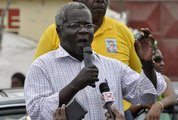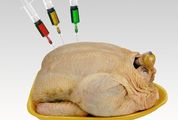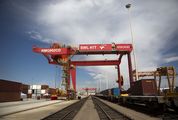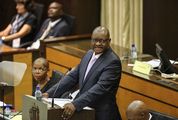Local content audit alert to state units
by Asha Speckman
2016-06-29 06:24:43.0
GOVERNMENT departments and entities that fail to buy goods that have been designated for local production from local suppliers will in future run the risk of a negative audit finding from the auditor-general, Trade and Industry Minister Rob Davies said on Tuesday.
The Department of Trade and Industry has designated a wide range of products for local production in an effort to stimulate local manufacturing.
Davies was addressing delegates at the two-day Manufacturing Indaba, which ends in Johannesburg on Wednesday.
Davies said more had to be done to secure stronger compliance across government. "Now we want to ensure stronger enforcement of that," he said.
Local procurement and supplier development had been a central focus of the Mining Phakisa programme, which aimed to join mining companies and upstream suppliers in a cluster, he said.
More information on the programme was to be announced soon. "It is imperative that we now begin to raise this matter as a matter of national priority and because none of us can ignore the pressing need to address the critical need to address unemployment and inequality," he said.
Davies emphasised the need to grow the country’s export basket, which he said was too small and too concentrated on primary products. Although the country recorded a trade surplus in March as exports rose to R96bn, he said there was still great uncertainty and headwinds were expected because of global economic volatility.
The manufacturing sector’s largest contributor to exports is the automotive industry, which accounts for 14.7% of exports.
Areas in which efforts to improve exports should be focused were key value chains such as automotive, rail and electrotechnical equipment, Davies said.
The government was focusing on collaboration and building an Africa export council.
The value of SA’s interregional trade now stood at $24bn from $6bn previously, Davies said.
Negotiations in the Tripartite Free Trade Area — a proposed free trade agreement between East African and Southern African communities — were "well on track", Davies said.
The free trade area would combine markets of 26 countries with a total population of 625-million and a gross domestic product of $1.6-trillion.
On Tuesday, delegates also heard that while the manufacturing sector was showing signs of improvement and had recorded a 0.6% rise in output during the first quarter of 2016, its stability was threatened by the Reserve Bank’s increase of interest rates in an effort to curb inflation.
Etienne Vlok, senior researcher at the South African Clothing and Textile Workers’ Union, said rising interest rates were negatively affecting the availability of working capital for companies.
"This (rising interest rates) could undermine some of the good work being done."
Earlier this month, the Treasury published revised preferential procurement regulations that require 30% of large government-issued contracts to be earmarked for small and black-owned companies through subcontracting.
The guidelines, which have been published for public comment, also give extra weight to black economic empowerment in a larger slice of tenders.
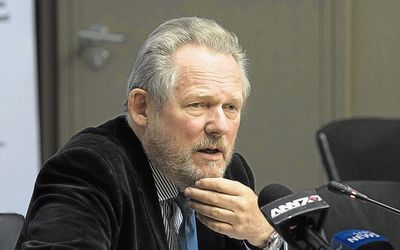
OUTPUT: Trade and Industry Minister Rob Davies wants to stimulate local factories. Picture: TREVOR SAMSON
GOVERNMENT departments and entities that fail to buy goods that have been designated for local production from local suppliers will in future run the risk of a negative audit finding from the auditor-general, Trade and Industry Minister Rob Davies said on Tuesday.
The Department of Trade and Industry has designated a wide range of products for local production in an effort to stimulate local manufacturing.
Davies was addressing delegates at the two-day Manufacturing Indaba, which ends in Johannesburg on Wednesday.
Davies said more had to be done to secure stronger compliance across government. "Now we want to ensure stronger enforcement of that," he said.
Local procurement and supplier development had been a central focus of the Mining Phakisa programme, which aimed to join mining companies and upstream suppliers in a cluster, he said.
More information on the programme was to be announced soon. "It is imperative that we now begin to raise this matter as a matter of national priority and because none of us can ignore the pressing need to address the critical need to address unemployment and inequality," he said.
Davies emphasised the need to grow the country’s export basket, which he said was too small and too concentrated on primary products. Although the country recorded a trade surplus in March as exports rose to R96bn, he said there was still great uncertainty and headwinds were expected because of global economic volatility.
The manufacturing sector’s largest contributor to exports is the automotive industry, which accounts for 14.7% of exports.
Areas in which efforts to improve exports should be focused were key value chains such as automotive, rail and electrotechnical equipment, Davies said.
The government was focusing on collaboration and building an Africa export council.
The value of SA’s interregional trade now stood at $24bn from $6bn previously, Davies said.
Negotiations in the Tripartite Free Trade Area — a proposed free trade agreement between East African and Southern African communities — were "well on track", Davies said.
The free trade area would combine markets of 26 countries with a total population of 625-million and a gross domestic product of $1.6-trillion.
On Tuesday, delegates also heard that while the manufacturing sector was showing signs of improvement and had recorded a 0.6% rise in output during the first quarter of 2016, its stability was threatened by the Reserve Bank’s increase of interest rates in an effort to curb inflation.
Etienne Vlok, senior researcher at the South African Clothing and Textile Workers’ Union, said rising interest rates were negatively affecting the availability of working capital for companies.
"This (rising interest rates) could undermine some of the good work being done."
Earlier this month, the Treasury published revised preferential procurement regulations that require 30% of large government-issued contracts to be earmarked for small and black-owned companies through subcontracting.
The guidelines, which have been published for public comment, also give extra weight to black economic empowerment in a larger slice of tenders.



